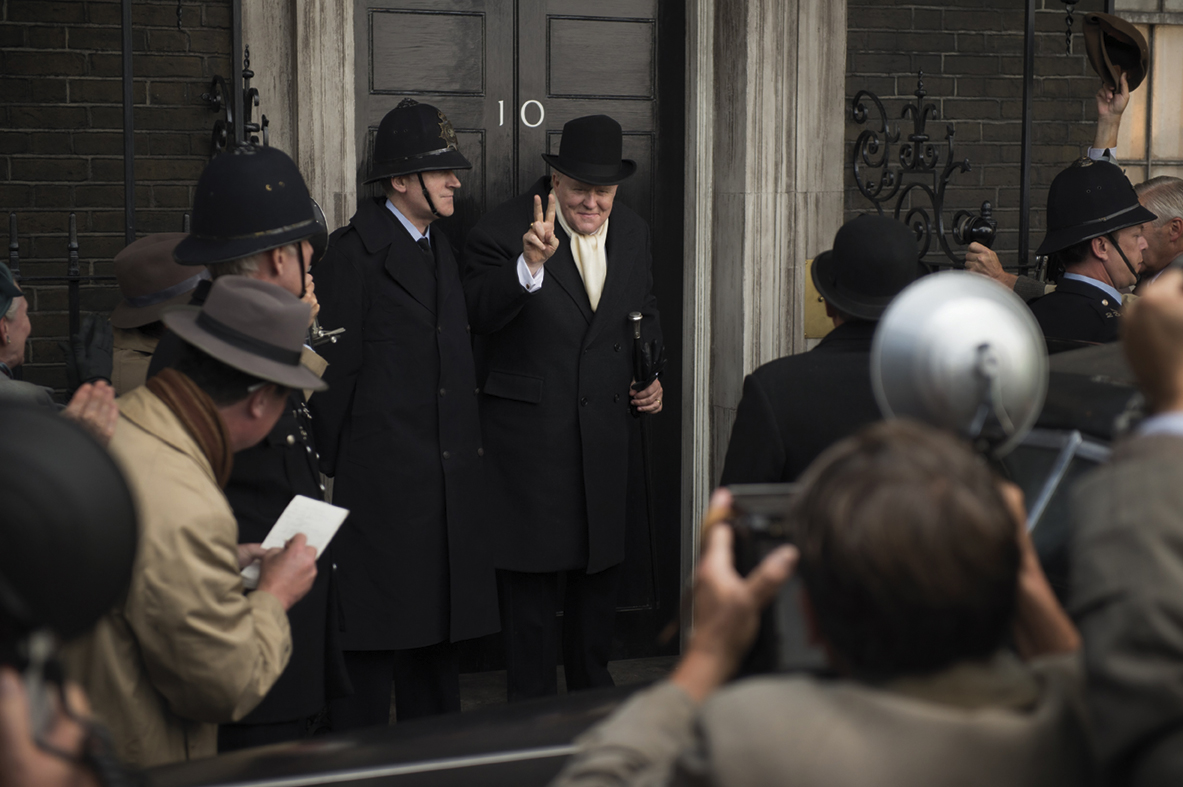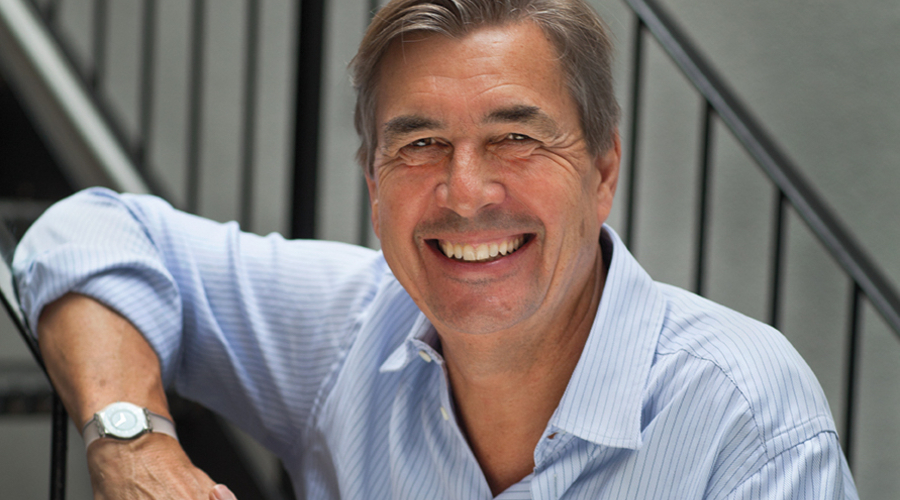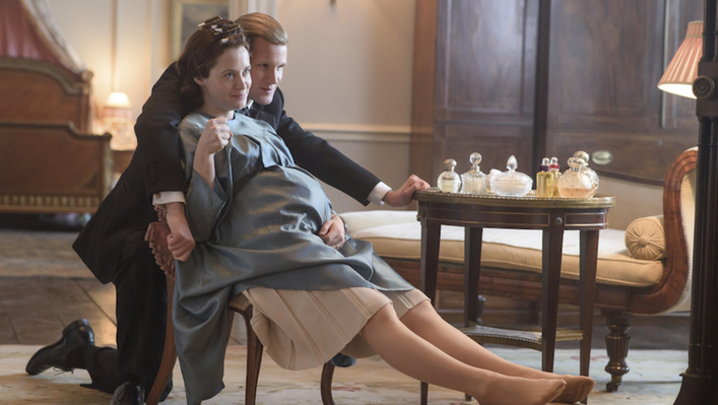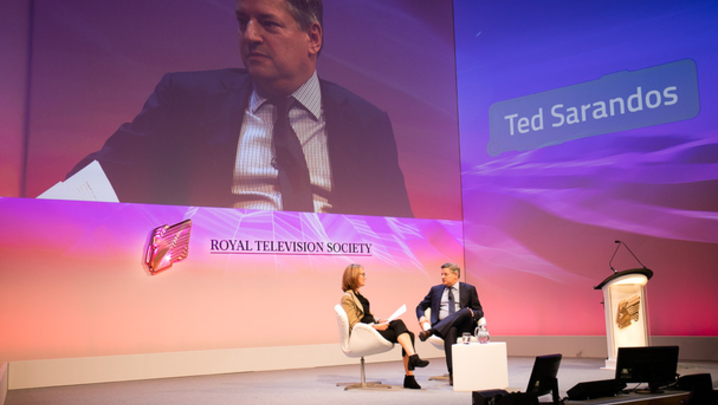As the drama specialist marks its tenth birthday, CEO Andy Harries tells Steve Clarke how The Crown transformed his company.
When Andy Harries was planning what became drama specialist Left Bank Pictures, around a decade ago, experienced TV executives told him that he was backing the wrong horse. They said that drama – expensive, time-consuming and hard to get right – was in decline. Reality shows were the future.
Today, drama is booming as never before and, by some reckonings, Left Bank is responsible for a fifth of all the TV drama produced in the UK.
With the prospect of having at least seven 10-part series on air next year, Left Bank is looking strong. This total includes season 2 of The Crown, the epic series that aims to tell the full story of the reign of Elizabeth II. Season 1 debuted on Netflix last autumn.
Unusually for a British entertainment company, most of Left Bank’s work is being done for US entities. Harries says: “Right now, we’re working for Netflix, Starz, HBO/Cinemax, Amazon and another big US company that I can’t tell you about… plus maybe a little bit of stuff for the BBC and Strike Back for Sky.”
We’re talking in the blue boardroom at Left Bank’s air-conditioned High Holborn HQ. The room commands an eye-catching view of west London, looking south towards the river.
But peer straight down and ignore that skyline. Focus, instead, on the swimmers and sunbathers relaxing at the Oasis pool below on this sweltering July lunchtime and you might imagine yourself in Hollywood.
"She is private and very professional, very warm and focused. If she is concerned about something she always makes her points very clearly.”
Hanging on the opposite wall is a full-length picture that parodies Da Vinci’s The Last Supper. Seated behind the long table in place of the disciples are the stars of the original Cold Feet alongside those of The Royle Family, two of Harries’ biggest shows in his previous life. The picture once graced the walls of ITV’s offices on the South Bank. It is a reminder of Harries’ time at Granada, where he ran comedy and, later and somewhat reluctantly, the drama department.
“I loved comedy,” Harries recalls. “It was only when I got into comedy that I started doing scripted. My background was in journalism. I’d have been very happy staying in comedy. I only went into drama because they offered me the job.”
As a Granada executive, The Royle Family was an important show for Harries, who worked closely with its creator and star, the late Caroline Aherne. “She was very, very clever and also incredibly funny.… We had huge rows. She kept sending me to Coventry and once tried to stop me attending The Royle Family set. It was a very, very volatile relationship.”
Yet, Harries has a reputation for being good, if not brilliant, with talent. His relationship with screenwriter Peter Morgan, who writes The Crown and scripted the Oscar-winning film The Queen (which Harries produced), goes back some 30 years. The pair’s other collaborations include The Deal, depicting the Blair-Brown feud, and Longford, a portrait of Lord Longford’s association with Moors murderer Myra Hindley.
“Any relationship that lasts more than 30 years has its emotional ups and downs. We have grown up together and achieved amazing things,” says Harries. “We don’t always see eye to eye –that’s not surprising – but our relationship is underpinned by deep love and respect for each other. He was the best godfather to my twin boys.”
Harries has worked with the star of The Queen, Helen Mirren, since reprising Prime Suspect at Granada in 2003 after a seven-year hiatus; the series went on to win an Emmy. Has he ever fallen out with her? “No. She is private and very professional, very warm and focused. If she is concerned about something she always makes her points very clearly.”
Harries is attempting to sell a four-part drama, penned by Guy Hibbert, in which Mirren plays a retired detective training police personnel at a refugee camp in Jordan. “Helen was sick of receiving terrible scripts that either had her character suffering from dementia or dying in a cancer ward. She wanted something that reflected her own life as an active, 70-year-old woman.”
The chances are that, by the time you read this, he will have sold the show. Ask Harries what he most likes about his job and he says: “I love selling shows, it gives me huge satisfaction.” He suppresses a laugh before adding: “I don’t mean that arrogantly. I love the challenge of trying to convince someone to part with a lot of money for something I passionately believe in. I love the making of it, too, but it’s the actual moment of selling that I find satisfying.”
Of course, without his skill at deal-making, there would be no Left Bank. Neither would Harries be as well-heeled as he is. He claims that money was not a motivating factor in the formation of Left Bank: “I never did it for the money.… I formed Left Bank because, at the time, Granada was unfocused on production and didn’t appreciate what it had in terms of production.”
Later on, he explains: “Getting money later in life is rather interesting. I could have done with some money earlier. There were times in the early years of Left Bank when I was broke.… Money gives you security, which is nice, but I haven’t moved house.”

He lives with his wife, the writer and film-maker Rebecca Frayn, the daughter of novellist Michael Frayn, in a home in Chiswick bought 20 years ago for £400,000. More recently, he bought a new bolt-hole in Ibiza, where he likes to practice yoga.
Whether it’s the yoga or his genes, Harries looks surprisingly boyish for a man who is 63. “At least Andy’s not still dying his hair,” joked his friend Wayne Garvie, during a speech he gave at Left Bank’s 10th anniversary party earlier this month.
It was Garvie, while at BBC Worldwide, who helped with Left Bank’s initial finance, when the BBC’s commercial arm invested in the firm; Worldwide initially took a 25% stake, later reduced to 12.5%. Today, Sony owns 51% of Left Bank, and Harries a quarter. Coincidentally, Garvie now runs Sony’s London-based international production business.
Sony reportedly paid £40m for its stake in Left Bank in 2012. What, with full knowledge of The Crown’s success, now looks like a very canny investment appeared much less compelling five years ago, explains Harries. Then, Left Bank was experiencing a bit of a blip. The company had established itself on the back of shows such as Wallander, made for the BBC, and Strike Back. He sold the latter to Sky almost on a whim – at the time, he hadn’t read the book or bought the rights. The show was recently revived for a fifth series.
“Left Bank built quite quickly. By year three to four, we’d built up a lot of commissions and the offers [to take a stake] were coming in. We didn’t court them,” he says.
Sony’s bid was the highest but, once the deal was sealed, Left Bank experienced a tough patch. Perhaps there was resentment that the producer had got such a good price, but doors weren’t opening as quickly as they once had. “I felt a bit frozen out by the BBC and ITV,” Harries remembers.
The way he tells it, the axing of two shows did Harries’ head in – the BBC jettisoned crime series Zen after one series and ITV cancelled relationship drama Married, Single, Other, also after one series.
“I felt suicidal,” he says. Seriously? “Well, suicidal is a bit strong. I’ve got three lovely kids. I felt so depressed. That was very difficult. I took it very personally. It ripped me up for weeks.”
Furthermore, the initial relationship with Sony was far from easy. “Sony didn’t understand what we did and they didn’t know how to work with us. No one reached out from the States at all, so we carried on with what we were doing.
“The Crown has got to top itself. It is your key show. You’ve got to look after it and nurture and love it. The best people are on it and we work 24/7 to make it.”
“Every time we went over to the States to sell, there was quite a lot of suspicion. They weren’t supporting us, they were suspicious of us.
“Basically, they were saying: ‘Why the fuck are you going round our town selling?’ I said: ‘I’m doing what I’ve always done.’ They said: ‘You’re part of Sony now, you have to tell us what you’re doing.’ I said: ‘Why?’”
Things started to improve when Outlander became part of Left Bank’s slate; Starz commissioned the show from Sony but Starz CEO Chris Albrecht insisted that Harries’ company was the producer. Winning the order from Netflix for The Crown was the icing on the cake. “We’d never had that kind of financial stability before. It’s given us a new confidence.”
Much has been written about how Netflix bought the show, in part to help the roll-out of its services in English-speaking countries around the world. There is no doubt that Left Bank found itself in the right place at the right time when Harries, Morgan and Stephen Daldry (who directed The Crown’s first two episodes) found themselves sitting in a Hollywood office with Netflix’s top people.
But hearing it from, as it were, the horse’s mouth, reminds us once more of British TV drama’s remarkable pre-eminence in global markets in recent years.
“The two key things in selling are: always try and get in on any new channels being set up; and always make sure the decision-makers are in the room,” says Harries. “In the room at Netflix, we had Ted Sarandos and Cindy Holland. They bought 20 hours of The Crown.… We’d pitched it to both ITV and the BBC. They’d each expressed huge interest. In a sense, I had them in the bag if I needed them.”
He adds: “Before we saw Netflix, we’d had meetings with HBO, Showtime and Fox. They were all good meetings. Netflix was the last meeting and we were feeling a little gung-ho.…
“I think they’d already decided to buy it before we went into the room. They’d read the script and knew the talent we had on board.”
It is believed that Netflix has greenlit two further 10-part series of The Crown. Series 3 begins in the early 1960s, while series 4 takes the story through to the age of Thatcher and the era of Diana, Princess of Wales. Recasting the entire show has begun and filming will commence next summer.
The Crown triumphed at the Golden Globes, secured a Broadcasting Press Guild award, but was conspicuous by its failure to win a Bafta this year and didn’t receive an RTS nomination.
Was Harries disappointed by these apparent snubs? “Not at all. I’ve been on far too many juries to be troubled by whether you win or not.… Broadly, I think that Netflix is perceived by many people who work in TV as a threat to their livelihoods. I don’t think that is correct, but they perceive it as a threat.”
I put it to Harries that it might prove difficult for Left Bank to top The Crown, creatively and in terms of its financial importance to the company. Harries, of course, gives his answer before I’ve finished the question.
“The Crown has got to top itself. It is your key show. You’ve got to look after it and nurture and love it. The best people are on it and we work 24/7 to make it.”
Andy Harries is speaking at the RTS Cambridge Convention in September.




